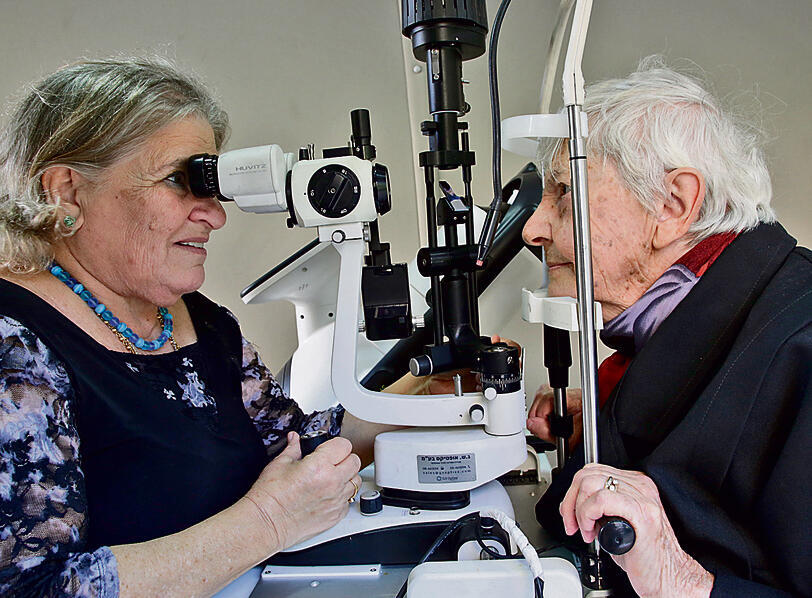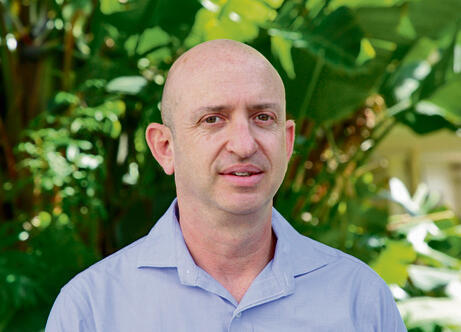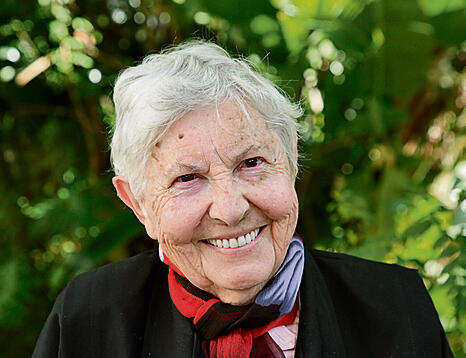Getting your Trinity Audio player ready...
Aviva Gordon, born in Lithuania in 1938, was introduced to the harsh realities of war at a tender age. Her parents were devoted Zionists, and her father, a member of the Betar Movement, facilitated groups of youths in their journey to Palestine. However, when she was only one, the war began, and their family life drastically changed.
"In 1940, my father was arrested for being a Zionist and sentenced to eight years in prison, deemed a public threat. In 1941, they decided to arrest my mother and me because we were his family," Gordon recalls.
In June of the same year, Hitler declared war on the Soviet Union. "At first, they murdered Jewish men, including my two uncles, and confined the Jews of Lithuania in the ghetto. Over time, all my mother's family members were murdered" she says.
"On July 22, they transferred my mother and me from the Altai prison to a town called Tenga, where they housed us in a sheep shed. We slept in straw, and it was extremely cold. Infants and elders began to die from the cold and hunger. Later, my mother discovered relatives of my father in Lithuania who had survived, and they informed us that my father was still alive. I was gravely ill, and they thought I wouldn't make it. Nonetheless, my mother insisted that as long as I could stand, I needed to escape. We eventually made it to a village in Ukraine, and thus, we were saved."
Today, Gordon resides in Holon, Israel. "I am grateful for everything I have; my life is good here in Israel, and everyone helps me," she says.
LeMa'anam (“for their sake” in Hebrew), a non-profit organization providing timely healthcare free of charge to Holocaust survivors, has been a significant support in recent years, including to Gordon.
This group comprises over a thousand volunteers - expert doctors in various fields, who cater to the medical needs of survivors.
"I reached out to the LeMa'anam when I required the advice of a vascular specialist, "Gordon reflects. "They recommended an expert who volunteers there, and he assisted me with my problems. It was straightforward, easy and comfortable. Despite the tough life I've experienced, now, at over 86, I enjoy the help and support of the community and can maintain good health thanks to these kind people who help me."
LeMa'anam was founded in 2020 by Dr. Tamara Colitz, an internal medicine specialist. She identified a pressing need among survivors for accessible medical aid, a need amplified during the COVID-19 pandemic. Since its inception, the organization's volunteers have supported thousands of Holocaust survivors.
They offer phone consultations, home visits, referrals to specialist clinics, help with bureaucratic procedures and run a mobile clinic specializing in ophthalmology, ENT, dermatology and plastic surgery, providing treatments at home.
"In these challenging times, we are dedicated to supporting survivors," Dr. Colitz says. "Since the onset of the war, we have extended our aid to the community of hostage families, assisted the Gaza border kibbutzim and are providing daily aid to IDF soldiers in the field and staging areas."
One of the physicians running the ophthalmology mobile unit is Dr. Merav Gabay, a retired ophthalmologist and a daughter of Holocaust survivors. When offered the opportunity to provide medical services to them, she didn't hesitate.
"My parents didn't speak about their war experiences, but the Holocaust was a constant presence in our lives," she shares. "It feels natural to continue helping survivors in my field of expertise, ophthalmology. Our mobile unit is intended for survivors, who are homebound or find it extremely difficult to leave their homes.
"We treat elderly people affected by age-related diseases: macular degeneration, cataracts, glaucoma. If left untreated, these diseases can lead to visual impairment. These people need to keep their vision. They read, watch TV. Their sight needs to be perfect until their last day. One of my recent patients was a lonely woman from Tel Aviv, invited by her neighbor. If it weren't for him, she would have been home alone, blind."
In a recent report, LeMa'anam reported a more than 60% rise in the number of Holocaust survivors seeking help. Since the war began, there has been a dramatic increase in the number of Holocaust survivors turning to the organization: 1,760 inquiries in the last three months compared to 754 in the same period last year. In the south, there was a 162% increase, and in the north and Haifa, a 152% increase in new inquiries compared to the same period last year.
Even inquiries about commonplace issues, such as toothache, are addressed. Dr. Yoel Telishevsky, a root canal specialist from Petah Tikva, has spent two years treating issues that aren't necessarily within his area of expertise. "Most of the patients directed to me through the organization don't need root canal treatments. As long as I can help, I do. With a bit of goodwill and assistance from friends, anything is possible," he says.
"It doesn't disrupt my daily routine. It's not a burden on me. Occasionally, it costs me an hour of work. It's quite easy to help someone in need. An elderly woman, a very ill Holocaust survivor, came to me once with a severe toothache, unable to eat. It was clear she was suffering. After several treatments, she could close her mouth, and a big smile spread across her face. It was incredibly moving. In another clinic where I work, I treated a French-speaking Holocaust survivor using Google Translate and a lot of mime."
He met Bella Cohen, who will turn 82 at the end of the month, when she needed a tooth extraction. Since then, she has been a regular patient. "Having a tooth extraction at my age isn't simple, but what matters most is the treatment I receive from him," says Cohen, who survived the war in Tashkent. "I couldn't make it home after the extraction, and Dr. Telishevsky called immediately to check on me. His humanity, that's what's missing from doctors today."
For four years, Cohen has sought answers to all her pains through LeMa'anam. "They give me a boost. They handle every problem and every question I have. When you go to a health fund, the doctor doesn't look at you. His head is buried in the computer. LeMa'anam gives me an attentive ear. They always go the extra mile. Words cannot express my gratitude," she says enthusiastically.
LeMa'anam are available at *3191





